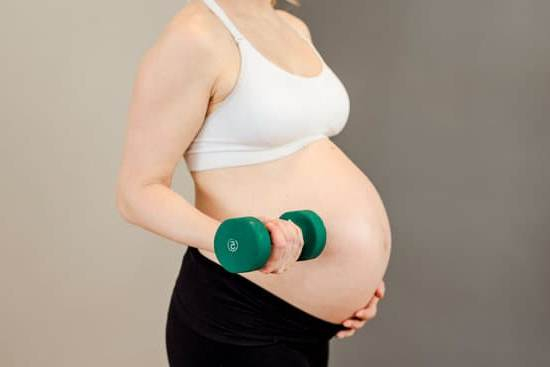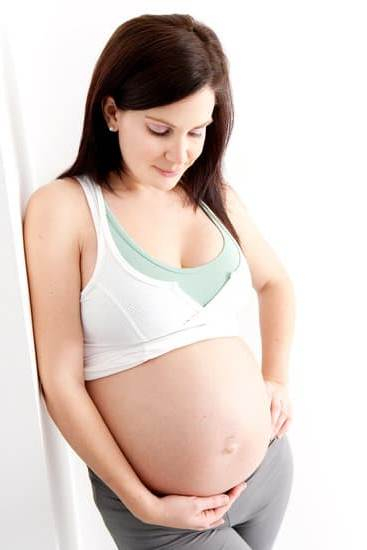Is back pain a sign of early pregnancy? Many women may experience this symptom in the early stages of pregnancy, along with other common signs such as nausea and fatigue. Understanding the connection between pregnancy and back pain is important for expectant mothers to ensure their health and well-being.
During the first few weeks of pregnancy, women may start to notice changes in their bodies that signal the beginning of a new chapter in their lives. These early signs can include physical discomforts such as back pain, which can be confusing for some as they try to determine whether it is related to pregnancy or not.
In this article, we will explore the relationship between back pain and early pregnancy, including the common causes and symptoms of back pain during this time. Additionally, we will discuss hormonal changes and how they impact back pain, as well as other early pregnancy symptoms. It is important for expectant mothers to be aware of these signs so that they can seek proper care and management when necessary.
Back Pain
During the early stages of pregnancy, the body undergoes significant hormonal changes that can lead to various symptoms, including back pain. The hormone relaxin is released in higher levels during pregnancy, which can cause the ligaments and muscles in the pelvic area to relax and become more flexible in preparation for childbirth. This increased flexibility can also affect other parts of the body, including the back, leading to discomfort and pain.
In addition to hormonal changes, weight gain and changes in posture during pregnancy can also contribute to back pain. As the uterus expands and the baby grows, the center of gravity shifts forward, putting strain on the back muscles and spine. These physical changes can result in varying degrees of back discomfort for pregnant women.
It is important for women who are experiencing back pain and suspect they may be pregnant to seek medical advice from a healthcare provider. While back pain is a common symptom of early pregnancy, it is essential to rule out other potential causes and ensure that proper prenatal care is provided.
If you are concerned about back pain being a sign of early pregnancy or if it persistently bothers you after getting pregnant or experience any unusual symptoms along with it then consult your doctor promptly to discuss your concerns”.
| Pregnancy Symptoms | Frequency |
|---|---|
| Nausea | 90% or more |
| Morning Sickness | About 3/4 (75%) of women will feel ill during early pregnancy. |
| Spotting | 30% |
Pregnancy and Back Pain
During pregnancy, many women experience back pain as the body goes through significant changes to accommodate a growing baby. The added weight and shifting of the center of gravity can put extra strain on the spine, leading to discomfort and pain. Understanding how pregnancy and back pain are related can help in managing this common symptom.
The relationship between pregnancy and back pain is often attributed to the physical changes that occur in the body. As the uterus expands and stretches, it can put pressure on the sciatic nerve, causing lower back pain. Additionally, hormonal changes, specifically an increase in relaxin, can loosen ligaments and joints in preparation for childbirth, which may also contribute to back discomfort.
To further understand the impact of pregnancy on back pain, consider the following:
- Changes in posture: As the belly grows larger, it’s natural for a pregnant woman to adjust her posture to compensate for the added weight in front. This change in posture can lead to strain on the lower back muscles.
- Stress on abdominal muscles: The abdominal muscles stretch during pregnancy to make room for the growing baby. This can weaken these muscles and cause additional strain on the lower back.
- Pelvic girdle pain: Some women may experience pelvic girdle pain during pregnancy, which includes discomfort in the pelvic area and lower back due to increased pressure and stretching of ligaments.
Understanding how pregnancy affects back pain is crucial for women who are experiencing this symptom. By recognizing these relationships, pregnant individuals can take proactive steps to manage their discomfort and seek appropriate medical guidance when necessary.
Hormonal Changes
During the early stages of pregnancy, hormonal changes play a significant role in the development of back pain. The sudden increase in hormone levels, particularly progesterone and relaxin, can cause the ligaments and joints in the pelvic area to become more relaxed and flexible. While this is beneficial for accommodating the growing fetus and preparing for childbirth, it also leads to instability in the lower back and can result in discomfort or pain.
The impact of hormonal changes on back pain during early pregnancy can vary from woman to woman. Some may experience mild discomfort, while others may have more intense symptoms. Additionally, these hormonal fluctuations can also contribute to other common pregnancy-related issues such as constipation and bloating, which can further exacerbate back pain.
Understanding how hormonal changes affect back pain during early pregnancy is essential for expecting mothers. It allows them to recognize that their symptoms are a normal part of the pregnancy process and seek appropriate measures for relief. By being aware of these hormonal influences, women can better manage their back pain and take proactive steps to ensure a healthy and comfortable pregnancy journey.
It is important for pregnant women experiencing back pain to consult with their healthcare provider before trying any treatment methods. While some over-the-counter medications may be safe during pregnancy, it is crucial to get professional guidance to ensure the well-being of both mother and baby. With proper care and attention, managing back pain caused by hormonal changes during early pregnancy is possible.
Other Early Pregnancy Symptoms
During the early stages of pregnancy, a woman’s body goes through various changes that can cause discomfort and unfamiliar symptoms. In addition to back pain, many women experience other early signs of pregnancy such as nausea, fatigue, and more. It’s essential to recognize these symptoms to ensure a healthy pregnancy and seek medical attention when needed.
Nausea and Vomiting
One common symptom of early pregnancy is nausea, often referred to as morning sickness. This queasiness can occur at any time of the day and is typically attributed to the hormonal changes taking place in the body. For some women, this may result in occasional vomiting, which can be distressing but is generally considered normal during the first trimester.
Fatigue
Feeling overly tired or experiencing extreme fatigue is another prevalent symptom during the early stages of pregnancy. The body undergoes significant hormonal shifts to support the developing fetus, leading to feelings of exhaustion. It is crucial for pregnant women to rest as much as possible and not overexert themselves, especially during the first few months of pregnancy.
Other Symptoms
In addition to nausea and fatigue, women may also experience heightened sensitivity to smell, frequent urination, breast tenderness, mood swings, and food aversions in early pregnancy. These symptoms are all linked to hormonal changes that are necessary for a healthy pregnancy.
Recognizing these symptoms can help women better understand what is happening in their bodies and seek appropriate care if needed. If any of these symptoms become severe or unbearable, it’s important for pregnant women to consult with their healthcare provider for guidance on managing them effectively.
When to See a Doctor
During early pregnancy, it’s not uncommon for women to experience some level of back pain. However, it is important to understand when back pain may be a sign of a more serious issue. Here are some guidelines on when you should consider seeing a doctor for your back pain during early pregnancy:
1. Severe or Persistent Pain: If you are experiencing severe or persistent back pain, especially if it is accompanied by other symptoms such as fever or vaginal bleeding, it is important to seek medical attention immediately.
2. Numbness or Tingling: If you are experiencing numbness or tingling in your lower back, buttocks, or legs, this could be a sign of a more serious condition such as sciatica and should be evaluated by a healthcare professional.
3. History of Back Problems: If you have a history of chronic back issues, such as herniated discs or spinal problems, it is important to discuss your pregnancy with your doctor early on and seek guidance on managing potential back pain.
4. Difficulty Walking or Standing: If your back pain is making it difficult for you to walk or stand for prolonged periods of time, this could indicate an underlying problem that requires medical attention.
It is essential to listen to your body and take any concerns about your back pain during early pregnancy seriously. Your healthcare provider can evaluate your symptoms and determine the best course of action for managing your discomfort and ensuring the health and safety of both you and your baby.
Tips for Managing Back Pain
During early pregnancy, back pain can be a common and bothersome symptom for many women. Thankfully, there are several safe and effective strategies for managing and finding relief from this discomfort.
Practice Good Posture
Maintaining proper posture is crucial for reducing back pain during pregnancy. This includes sitting up straight, avoiding slouching, and using supportive pillows while sitting or sleeping to alleviate pressure on the lower back.
Stay Active
Engaging in gentle exercise such as prenatal yoga, swimming, or walking can help strengthen the muscles that support the back and improve flexibility. However, it is important to consult with a healthcare provider before starting any new exercise routine during pregnancy.
Use Supportive Footwear
Wearing comfortable and supportive shoes can also help to reduce back pain. Avoiding high heels and opting for shoes with good arch support can alleviate strain on the back.
In addition to these strategies, prenatal massage, hot or cold compresses, and wearing a maternity support belt may also provide relief from back pain during early pregnancy. It is important to discuss any discomfort with a healthcare provider to ensure that the chosen coping mechanisms are safe for both mother and baby throughout the duration of the pregnancy.
Conclusion
In conclusion, while back pain on its own is not a definitive sign of early pregnancy, it can be a potential indicator when experienced alongside other symptoms. Understanding the early signs of pregnancy, including back pain, can help individuals recognize the possibility of pregnancy and take appropriate steps for confirmation and care.
Pregnancy and back pain are often related due to hormonal changes that occur in the body during early pregnancy. These changes can lead to physical discomfort and may contribute to back pain as well as other symptoms such as nausea and fatigue. It is essential for individuals who suspect they may be pregnant and are experiencing back pain to monitor their symptoms closely and seek medical advice if needed.
When experiencing back pain in early pregnancy, it is crucial to know when to seek professional help. If the pain is severe or persistent, or if it is accompanied by other concerning symptoms, consulting a healthcare provider is advisable.
Medical professionals can provide proper diagnosis and recommend safe and effective strategies for managing back pain during early pregnancy. Being vigilant about one’s health and seeking professional help when needed will ensure the best possible care for both the expecting mother and her developing baby.
Frequently Asked Questions
What Does Early Pregnancy Back Pain Feel Like?
Early pregnancy back pain can feel like a dull ache or sharp, shooting pain in the lower back. It is often described as similar to the sensation experienced during menstruation, but it can vary from person to person.
What Are the Earliest Signs of Pregnancy?
The earliest signs of pregnancy can include missed periods, fatigue, nausea, breast tenderness, and frequent urination. Some women also experience implantation bleeding, mood swings, and heightened sense of smell as early pregnancy symptoms.
Is Backache a Sign of Implantation?
Backache can be a sign of implantation for some women. It typically occurs around the time when the fertilized egg implants itself into the uterine lining. This may cause mild cramping or lower back pain for some women, although it is not a universal symptom of implantation.

Welcome to my fertility blog. This is a space where I will be sharing my experiences as I navigate through the world of fertility treatments, as well as provide information and resources about fertility and pregnancy.





